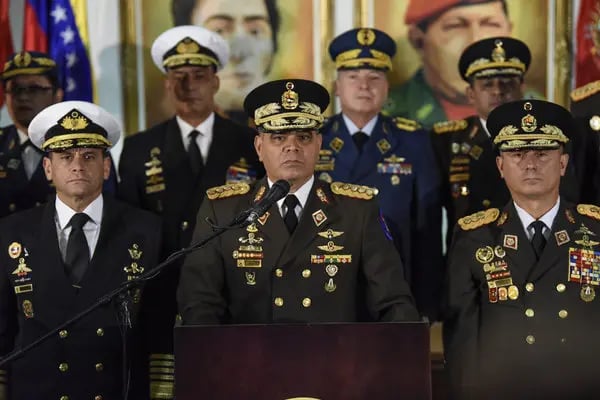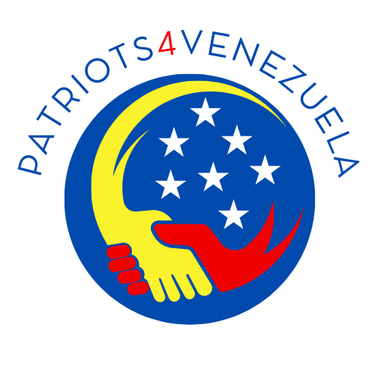Who runs the Tren de Aragua?
Venezuela's Tren de Aragua gang is not the root cause of organized crime. The real power lies with the Venezuelan military leadership, particularly the Cartel of the Suns, which controls drug trafficking and other illicit activities. The militarization of the state under Maduro has transformed the armed forces into a repressive entity, necessitating targeted U.S. actions against high-ranking officials to dismantle this narco-state structure.
Miguel Angel Martin Tortabu | Twitter: miguelmartint_
3/31/20254 min read


The True Power Behind the Tren de Aragua: Maduro’s Praetorian Guard
In recent years, the Tren de Aragua (TdA) has captured the attention of media and authorities in the United States, Colombia, Peru, and Chile. This criminal organization, born in Venezuelan prisons, has expanded its influence beyond borders, becoming a key player in transnational organized crime. However, dismantling the TdA is only part of the problem. To truly understand the scope of crime in Venezuela, it is essential to look beyond—to the military leadership that controls everything from the shadows.
Who pulls the strings?
Many believe that dismantling the Tren de Aragua would be enough to reduce crime in Venezuela. However, history shows that eliminating a criminal organization without targeting the structure that supports it only paves the way for new actors. A clear example is the Medellín Cartel: when Pablo Escobar was killed, the Cali Cartel took its place.
In Venezuela, the true power structure that sustains and protects organized crime is the Venezuelan National Armed Forces (FANB). Instead of fulfilling their constitutional role of safeguarding national sovereignty, the FANB has become a corrupt entity managing drug trafficking, smuggling, and political repression.
The militarization of crime
The turning point occurred in 2020, when the National Constituent Assembly unconstitutionally approved the Constitutional Law of the Armed Forces, solidifying Venezuela as a military dictatorship. This law granted Nicolás Maduro absolute control over promotions and assignments within the FANB, transforming him into a supreme commander with no restrictions and full operational authority.
One of the most dangerous aspects of this law was the official recognition of the Bolivarian Militia, a parallel structure composed of armed civilians indoctrinated in chavista ideology. Their role is not to protect the nation but to act as a repressive arm of the regime, functioning as a state-backed paramilitary force.
This strategy of militarizing the state is not unprecedented. Totalitarian regimes throughout history have used similar tactics. Notable examples include Nazi Germany, Fascist Italy, and more recently, dictatorships like North Korea, which have consolidated power by eliminating the autonomy of civilian institutions and turning the armed forces into a political instrument.
The Cartel of the Suns: The true face of organized crime
Crime in Venezuela is not limited to gangs like the Tren de Aragua. Behind these gangs operates the Cartel of the Suns, a network of FANB generals that has controlled drug trafficking for years. This cartel, composed of high-ranking military officials, manages drug, arms, and human trafficking routes, benefiting from state protection.
In 2020, the U.S. government directly linked Maduro and his inner circle to the Cartel of the Suns, identifying the military leadership as the true force behind the region’s drug trafficking boom. The Constitutional Law of the FANB not only consolidated the power of these generals but also gave them free rein to expand their illicit operations.
While the Tren de Aragua is the visible face of organized crime, the FANB is the entity pulling the strings from within the government. It is the military that facilitates drug trafficking, controls smuggling, and represses those who dare to challenge the system.
How should the United States respond?
Applying the 1798 Alien Enemies Act to combat the TdA has been a successful strategy in supporting the detention and deportation of its members. However, the real enemy is not just a gang of criminals but the military elite that directs Venezuela’s narco-state. In this regard, the response must focus on identifying the generals of the REDI and ZODI military commands.
Thus, the U.S. strategy should aim at dismantling the power structure that sustains these criminal networks. This means:
Sanctioning and isolating high-ranking military officials involved in drug trafficking.
Strengthening cooperation with regional governments to cut off the smuggling routes controlled by the FANB.
Increasing pressure on the Maduro regime by exposing the army’s generals as the true operators of organized crime in Venezuela.
It is not enough to go after gangs or low-level cartel bosses. If the FANB remains the most organized criminal enterprise in the region, Venezuela will continue to be a destabilizing force for Latin America and the world.
How does the chavista military structure operate?
Venezuela’s military structure is organized into Strategic Regions of Integral Defense (REDI) and Operational Zones of Integral Defense (ZODI) to decentralize military control and ensure security and defense throughout the national territory. Each REDI is led by a REDI Commander, usually a high-ranking officer (general or admiral), who reports directly to the Strategic Operational Command of the FANB (CEOFANB).
The ZODI are subdivisions within each REDI and operate at the state level, meaning each Venezuelan state has a ZODI responsible for coordinating military and security operations within its jurisdiction. Each ZODI is led by a ZODI Commander, usually a Major General or Vice Admiral.
In practice, these structures have not only served to ensure national defense but also to consolidate the regime’s political and social control. The REDI make strategic decisions at the regional level, while the ZODI execute operations within each state. These structures have been used to suppress protests, subjugate the civilian population, and play a key role in the distribution of food and fuel, consolidating their power over strategic sectors of the economy. Most concerning, however, is their involvement in the Cartel of the Suns, propping up the regime and coordinating with the criminal gangs that plague the country and the region.
The United States must turn its attention to them, as they are the true backbone of the corruption and violence system that dominates Venezuela and the region.
In conclusion, the focus must be on military leadership
Every time attention is solely placed on organizations like the Tren de Aragua, the real problem is overlooked: the military elite’s control over organized crime in Venezuela. The Venezuelan army no longer protects its people; it safeguards its own criminal empire.
Their leaders do not hide in the shadows—they parade through Caracas in full-dress uniform while their families enjoy illicit fortunes abroad as their country collapses.
It is time to stop playing cat and mouse with low-level criminal groups and start targeting those who truly hold power: the military leadership that has turned Venezuela into a narco-state.
“As long as the world continues chasing the shadows of organized crime in Venezuela, the true culprits will continue to operate with impunity from the barracks of Maduro’s regime.”
